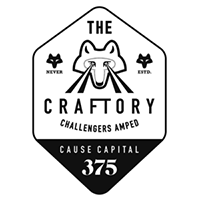Why Trust vanishes like a Guilty Thing
When it’s gone, it’s gone. Rejoice!
There was genuine sadness in their eyes, and more than a hint of hurt pride. For the assembled coterie of McDonald’s executives, the maligning of their brand was simply incomprehensible. “All our beef comes from sustainable, local farms”, one of them said. “There’s only prime chicken breast in our Nuggets”, another insisted. “We give some of the most disadvantaged in our society safe jobs with decent pay and real prospects for productive lives. So why does everybody think we’re slave drivers and that there’s only disgusting gristle in our burgers?”.
The answer is trust: first, how to squander it, next, how not to try to win it back. And it’s all magnificent news for challengers.
McDonald’s didn’t start out this way: even as recently as the 1990s, they were the celebrated symbol of America at its best – reliable, efficient, democratic, and great value for money. Same for Procter & Gamble, Unilever, Johnson&Johnson, General Mills and other FMCG giants of this world. They defined an efficient way of life at a time when society prioritised efficiently raising living standards. However in the drive for scale and efficiency, all FMCG brands started cutting corners and chipping away at core values: replacing sugar with corn syrup, butter with palm oil, skilled labour with sweatshops, glass with plastic… all in the pursuit of efficiency.
Fast-forward to the connected generation, and efficiency is no longer the priority. Instead, for these consumers it’s about honesty, tolerance, fairness, provenance, diversity, quality - and sustainable use of our planet’s resources. Against this changed paradigm, all the venerable brands of old stand on the wrong side of history, representing values and priorities that society no longer shares - and with their trust hence resolutely squandered.
McDonald’s attempt at trying to win back consumers’ trust has been typically misguided: lavishing vast sums on polished TV commercials insisting that all their beef is sourced from local farms, that only prime chicken breast goes into their Nuggets, and that becoming a McDonald’s restaurant manager offers a terrific, accessible career for anyone. Whilst the claims may be true, the medium of communication is not, because the connected generation simply doesn’t believe interruptive advertising. A brand that has lost consumers’ trust won’t win it back with polished adverts saying “trust me”.
That is fabulous news for challengers, because it means the incumbents they’re out to topple are stuck in a corner they can’t move out of. And there is plenty of evidence to suggest consumers simply don’t trust anything Big Business does to counter the challenger revolution. Take the example of Halo Top ice cream, who in less than 2 years have taken a huge scoop out of the ice cream market in the US with their low-calorie, high-protein formulation. It took Unilever barely months to respond to Halo Top’s launch with their own equivalent product, shamelessly packaged with the same calorie count in fat print across the label. However consumers didn’t buy it. And for good reason: if Unilever had had the capability for years to launch a high-quality, low-calorie, protein-rich ice cream made with wholesome Stevia instead of corn syrup, why didn’t they? Copying Halo Top felt like a mealy-mouthed admission that they had short-changed consumers for decades. And so it goes with McDonald’s “gristly” burgers, Gillette’s “overpriced” razors, and L’Oréal’s “photoshopped” makeup.
So take free aim, challengers: the trust goal is wide open, and the keeper has his hands tied behind his back.
Unless, of course, you think I’m wrong, and that the Gilette, L’Oréal and McDonald’s of history can reinvent themselves?
Ernesto Schmitt is co-founder at The Craftory, the brand-new counter-corporate anti-VC on a $300M mission to back the world's boldest insurgent challenger brands in the consumer goods space.


